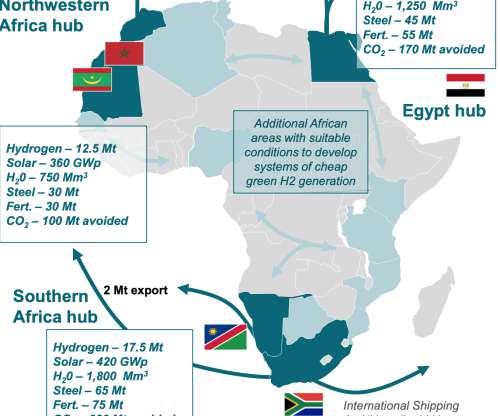Study confirms €1T green hydrogen potential for Africa
Green Car Congress
DECEMBER 22, 2022
Africa can produce 50 million tons of green hydrogen a year by 2035, according to a new study by the European Investment Bank (EIB), International Solar Alliance and the African Union, with the support of the Government of Mauritania, HyDeal and UCLG Africa. The report was formally handed over to partners on 20 December.












Let's personalize your content